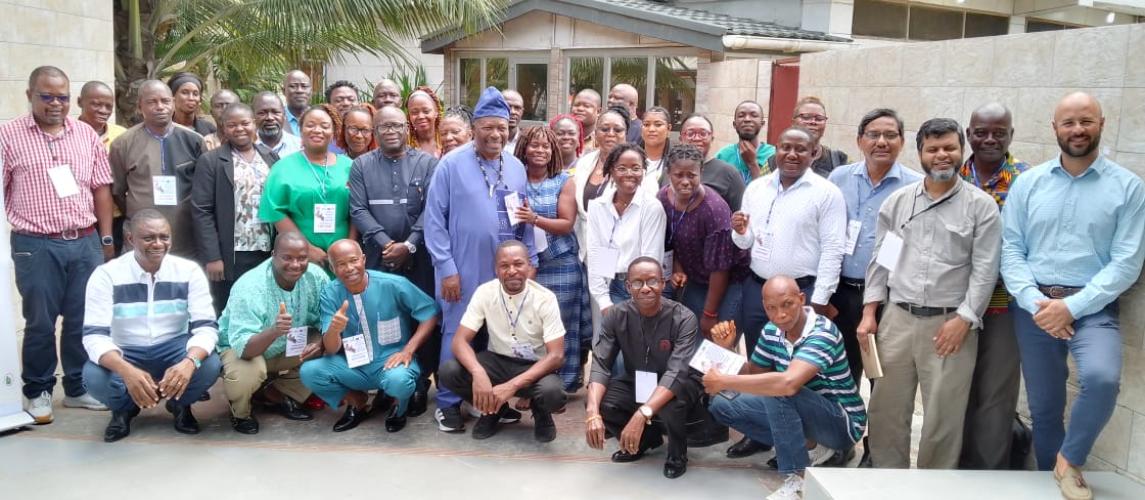
Stakeholders Endorse New Seed Development and Certification Agency to Boost Food Security
CONGO TOWN, Liberia – Amid persistent challenges in Liberia’s agricultural sector, ranging from limited data on crop varieties and seed companies to an insufficient supply of high-quality seeds and research, the nation remains vulnerable to food insecurity. In response, on 8 May 2025 in Monrovia, agricultural stakeholders validated key documents that form the foundation of the new Seed Development and Certification Agency (SDCA).
The brainchild of the Central Agricultural Research Institute (CARI), this initiative, aligning with Liberia’s national agriculture agenda and the broader West African harmonized seed legislation program, marks a transformative step toward establishing a resilient national seed system.
In a detailed presentation, Jobson A. Momo, Director General of the SDCA, outlined the agency’s mandate: to coordinate, regulate, and administer all aspects of seed certification and development. By empowering the SDCA to oversee seed quality control, promote robust research, and facilitate improved seed distribution, Liberia aims to build an industry where improved certified seeds are both accessible and affordable to all farmers. With a commitment to sustainable agricultural transformation, aligned with the national agriculture agenda, the agency is engaging with donors, project partners, seed companies, and growers to drive this vision forward.
At a recent high-level workshop, key stakeholders gathered to review and validate the operational and regulatory documents essential for the SDCA’s effective functioning. Dr. Sali Atanga, the lead facilitator from the International Institute for Tropical Agriculture (IITA), emphasized that the process was designed not only for technical refinement but also to ensure that all Liberians understand the role and functions of the new agency. By fostering an open, inclusive dialogue, participants helped shape the seed certification processes and contributed to the establishment of an accountable seed board. “We want your contributions to this process so that tomorrow you don’t say it was imposed on you,” Dr. Antanga noted, underscoring the collaborative spirit of the engagement.
This validation session represents a pivotal milestone in modernizing Liberia’s seed industry. Through structured discussions and technical reviews, stakeholders reached consensus on key frameworks and procedures. The workshop also provided an opportunity to ensure that feedback from experts on the regulatory documents would lead to an operational SDCA that is both technically sound and contextually relevant. Stakeholders stressed that a harmonized seed regulation system is critical for ensuring that Liberia’s agricultural products meet regional and international standards.
Solomon Hedd-Williams, Deputy Minister for Technical Services at the Ministry of Agriculture, highlighted the importance of the SDCA in ensuring that farmers receive high-quality seeds on time—a crucial factor for any thriving agriculture sector. “High-quality seeds are the foundation of agriculture in any country,” he asserted, adding that the agency’s establishment is a significant stride toward boosting food security and increasing productivity in Liberia. “The establishment of the agency is to ensure that farmers in Liberia access high-quality inputs that are affordable on time.
Additionally, Jeroen Witkamp, European Union Head of Cooperation, pledged support by noting that the EU is contributing €65 million to Liberia’s agriculture sector. This investment underscores the international commitment to modernizing the nation’s seed industry, reducing reliance on uncertified imports, and enhancing the competitiveness of Liberian agriculture across ECOWAS markets.
Stakeholders from across the sub-region sharing experiences on the establishment and operation of the agency, encouraged participants to drive practical approaches that are in line with regional protocols on seed development, validation, and certification in Liberia.
With ongoing efforts to launch a national seed certification campaign in collaboration with key stakeholders, the SDCA is poised to become a cornerstone of Liberia’s agricultural reform. The agency’s operational framework is expected to deliver quality, certified seeds, laying the foundation for improved crop productivity, farmer profitability, and ultimately, enhanced food security throughout the country.
The collective efforts of government officials, industry experts, and international partners signal a new chapter for Liberia’s agricultural sector—one rooted in innovation, quality control, and sustainable growth. The establishment of the agency marks the beginning of enrolling Liberia into the harmonized seed legislation program in West Africa.
A presentation by Professor Shehu Ganti Aido, CORAF representative, explained the policy framework and the operationalization of the National Seed Development and Certification Agency. CORAF is the international non-profit association working to enhance prosperity, food, and nutrition security in West and Central Africa. The objective of the group is to improve the efficiency and effectiveness of smallholder farmers and promote the agribusiness sector.
